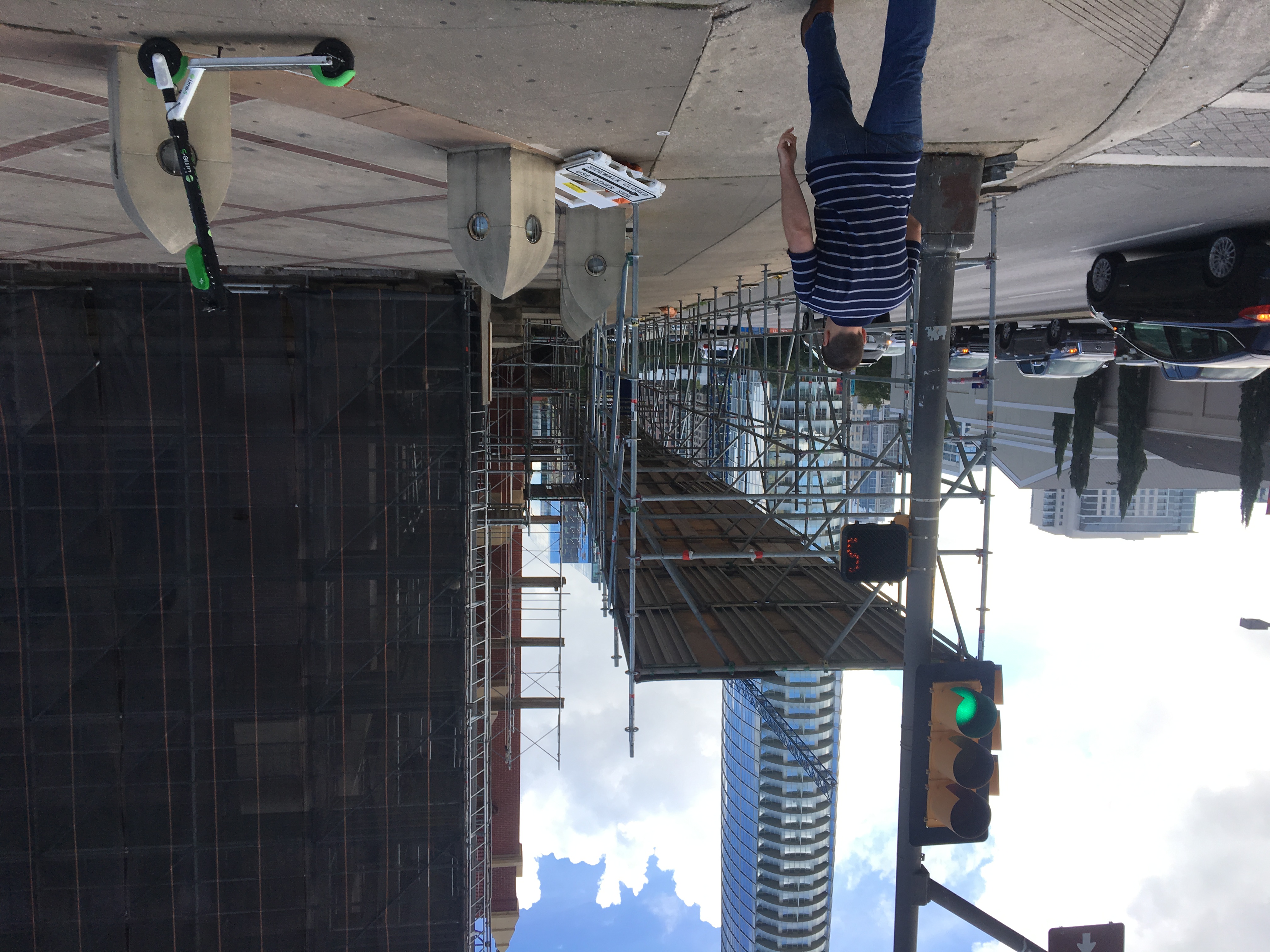For years, Dallas’ right of way policy has existed in a state of chaos. If a contractor wanted to close a street or a sidewalk, sure, it had to tell the city and get permission. But it didn’t have to say anything about where the traffic or the pedestrians would go. Where are the detours? Are any nearby sidewalks closed? You putting up scaffolding? Previously, the city didn’t require the contractors to provide those details. And it certainly didn’t send anyone to check.
You just dealt with the construction—especially in downtown and Uptown—like stepping over a child’s toys left out in the living room. Last week, the City Council quietly approved a new ordinance that will require contractors to explain how they’re going to accommodate pedestrian traffic and drivers when their project bleeds into the right of way. They’ll have to put up more signage announcing such things and tell every business within 500 feet of the affected area. If they’re putting metal plates in the street, they’ll have to make sure they are bound to the concrete and slope so that they do not create noise when a car drives over them. Get ready for more scaffolding and increased coordination; the city seems amped to not allow two contractors to work on opposite sidewalks at the same time. And now, staffers will be checking and writing tickets. When the city began issuing citations, they racked up 314 in five months. That generated over $100,000 in revenue.
“We actually had those rules on the books, we just never enforced them,” says Robert Perez, Dallas’ head of public works. “Now, (violators) have to pay those or go to court for them, so we’ve used that as an enforcement tool to actually and try and get compliance with our rules that are out there.”
Many at City Hall think that Dallas has historically feared that regulation and enforcement might stifle development, particularly in downtown and Uptown. It’s clear that this isn’t the case. Cranes dot the landscape. Office rents set new records seemingly every year; one building on McKinney Avenue commanded $500 a square foot when it opened in 2016.
“These guys, especially these national contracting companies that work all over the country, they know how to do this stuff because they have to do it in other markets,” said Councilman Philip Kingston, who represents downtown, Uptown, and East Dallas. “In Dallas, they’ve been getting away with it so long.”
Part of this is because of poor processes. Perez says the city staffers who were in charge of OK’ing street and sidewalk closures worked separate from the folks over right of way requests. Sometimes they didn’t talk to each other, and that occasionally resulted in conflicting projects getting approval at the same time. These staffers now sit next to one another. Perez says the new rules impact all contractors, even companies that received approval prior to the council’s vote. After all, traffic control plans are meant to evolve as a project progresses. You finish part of a job, you should be clearing your materials off the sidewalk and notifying the city.
“A traffic control plan is a living document and it will change in the course of construction,” says Alireza Hatefi, a senior program manager in public works. “We try to monitor all these. If one side of the street is closed, we don’t want the other side to also be closed. … we’re trying to avoid blocking the sidewalks at the same time on both sides of a street.”
In short, we’re doing what real cities do. We’re putting our people first and enforcing rules that will assure it. And it’s been a long time coming. Kingston says he has been pushing for this for at least three years, dating back to when A.C. Gonzalez was the city manager. Kingston says he could never get him to pay attention to the issue. We’ve been shaming the contractors for the past 15 months with our “Dallas Hates Pedestrians” series. Assistant City Manager Majed Al Ghafry made it a priority. Perez and Hatefi in public works helped write the ordinance. Councilman Lee Kleinman, the mobility committee chair, made sure that it was front and center this year.
It’s encouraging that so many people in city government are now paying attention to pedestrians.
“Historically the city, in an effort not to get in the way of progress, has let our right of way be abused or let our right of way lean more toward the users of the right of way as opposed to the community at large,” Kleinman said. “But you know what? This belongs to the citizens and citizens should be able to use it.”
It seems like a simple thing. Perhaps Kingston’s expectation will become something we see commonly around the city.
“I want to see somebody do a downtown remodel or a new construction project in Uptown where I get to walk on the sidewalk on the same side of the street under scaffolding and there’s less interruption of the pedestrian realm than we have today,” Kingston says. “I don’t want to cross a street anymore to get to a sidewalk.”





